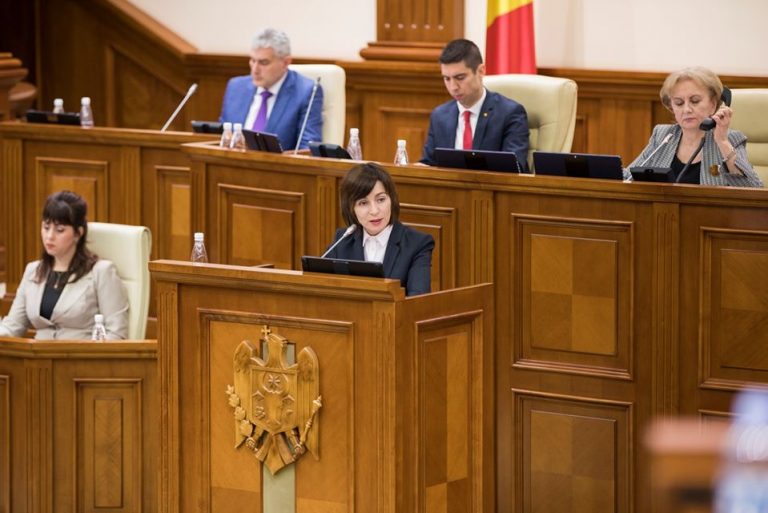The Sandu government resignation resulted from government pressure on corrupt officials and the use of oligarchic circles by Russia to strengthen the position of pro-Russian president Igor Dodon.
A motion of no confidence in the government of Maia Sandu was approved on Tuesday, November 12, by 63 MPs out of 101 votes. The presidential Socialist party faction spoke in favor of the cabinet’s dismissal, their initiative was supported by the Democrats, whose former leader Vladimir Plahotniuc lost power in June amid the crisis and fled the country.
In fact, a single strategy is used by Russia: a targeted undermining and discrediting of reforms to prevent the emergence of new political forces and the positive results of economic development. The implementation of such a strategy allows preserving the positions of the old political pro-Russian leaders and parties formed in the post-Soviet period with close links to the Russian Federation.
Thus, in Moldova, socialists are afraid of a strong cabinet of ministers, against which Igor Dodon’s position is weakening.
Russia used the votes of the oligarch Vladimir Plahotniuc’s Democratic Party MPs to dismiss the Sandu government, capitalizing on his business interests, including those in Russia.
The alliance against the Sandu government developed as a reaction to her actions to eliminate the tender system and customs schemes, thus affecting the interests of some politicians of the Moldovan parliament.
The former Minister of Justice Olesea Stamate’s decision to cancel the results of the competition for the position of Attorney General, doubting the objectivity of the evaluation commission, became the message to Sandu’s opponents to consolidate.
The Kremlin was annoyed by the ACUM’s unionist and patriotic rhetoric which was not in line with the plans for a complete pivot of Moldova toward Russia.
Igor Dodon is likely to try to split the ACUM, persuading them to form a new coalition with the socialists without Sandu, and to nominate a new candidate who will take a less radical position in fighting corruption. Anti-corruption was one of the EU requirements. Thus, the resignation of the Sandu government hurts Moldova-EU cooperation and spells trouble for the conditions of the republic’s external loans. Brussels will not refuse to support Chisinau, but the level of banking and financial cooperation may be slightly reduced.
As a result, Chisinau can resort to the RF financing in return for fulfilling several political requirements, Moldova’s federalization among them.
The Sandu government can only perform the public affairs management, according to the Constitution of the Republic of Moldova, until the members of the new government take the oath. The government will retain the ability to ensure only the implementation of foreign policy and legislative initiatives in areas related to the development and approval of new activity programs.
If the government is not formed within three months, Igor Dodon, having consulted the parliamentary factions, can dissolve the parliament and call early parliamentary elections. Such a scenario suits Russia but will not gain the US and the EU support.
The new choice of Moldova’s Prime Minister will obviously become an analogue of the oligarch Vladimir Plahotniuc. His task will be to preserve the business model built in Moldova over the past 10 years, as well as the rapprochement with Russia, hindered by Sandu, despite the signals coming from Dodon.




